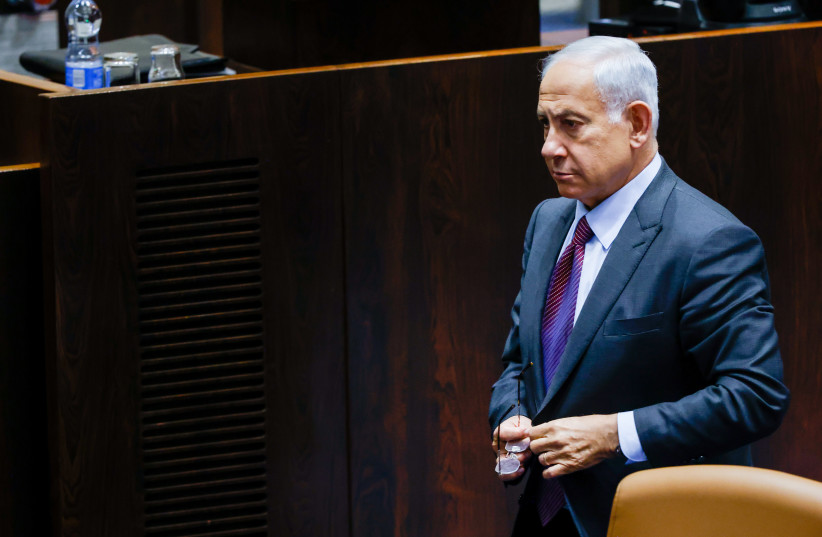by Michael Starr
Eleven justices will preside over the case. The bench was expanded from three judges following the first hearing on August 3.
 |
Protesters rallied outside the Supreme Court of Justice building as 11 justices convened on Thursday morning to hear arguments on delaying the application of the incapacitation law until the next government.
The hearing is the second on the March 23 incapacitation law, which altered the conditions for the procedure to have the prime minister declared unfit for service. The law clarified that the incapacitation procedure can only be activated for health reasons, and after approval by the prime minister and a series of votes by the government and Knesset Home committee.
Three justices heard August 3 arguments on petitions to strike down the basic law amendment over claims that the legislation was motivated by an attempt to shore up Prime Minister Benjamin Netanyahu's legal position.
Knesset legal representative Yitzhak Bart argued that the threshold for judicial review of the law was not being met, in particular regarding to it being political, as "In past cases, political considerations have not been enough to strike down a basic law." Not just cancellation, but interpretation of basic laws should only occur in extreme cases.
Court Vice-President Uzi Vogelman said the path of legal interpretation has certainly been pursued before on Basic Laws of a personal character.


Under query from Justice Alex Stein, Bart admitted that part of the motivation for the law was likely personal or political, but the status of the government is a personal and political matter for the MKs that voted for the legislation. He said that there is no way to be completely certain why they voted, as MKs have a wide variety of interests, and their job is politics and implementing their ideologies.
Suspicions and conspiracies
Justice Daphne Barak-Erez said that Bart was arguing that was no such thing as a personal law even when there is a personal law. Justice Amat Baron stated flatly that the law was a personal one.
Bart separated motivation behind the law from its purpose, which he said was to fill a lacuna in the law. Justice Ofer Grosskopf said that the purpose of the law is connected to the content, which was to make it difficult to activate incapacitation.
Grosskopf questioned Bart if it was acceptable for the government to change the rules of the game for itself during play. Bart argued that unlike legislation like the Tiberias Law, this law was not retrospective but forward looking. He also tried to refer to the basic law amendment that allowed alternating prime ministers, but Hayut reminded him that the law was severely criticised by the court and there were other mitigating circumstances in the government proceeding with the law in play. Justice David Mints suggested while the law comes not effect immediately, the effect isn’t immediately in play because of the type of application.
Hayut reminded the respondents multiple times that the question at hand was whether the law should be delayed or not, and asked Bart why the law needed to come into effect now rather than later.
“Is there an urgent need that requires that it come into effect now?” Asked Hayut?
She also noted that when the law was activated when the prime minister was recently hospitalised, the procedure itself didn’t stand up to muster since the government couldn’t activate it in time and had to do so retroactively.
Netanyahu has been subject to the conditions of a conflict of interest agreement since 2020, limiting some of his prime ministerial powers to prevent fear that he may influence his ongoing corruption trial. This included limiting his role in appointing of law enforcement, judicial, and prosecution officials who could impact the trial.
The judicial reform, which was announced in January, included changes to the rules and composition of the Judicial Selection Committee. Critics fear that political judges could preside over a corruption trial appeal. The reasonableness standard law was also a concern, as the coalition could replace the attorney-general without the requirement to behave reasonably and explain their policy.
Following reports that the attorney-general sought the ousting of Netanyahu through the incapacitation procedure, the coalition began the legislation of the new law. This was seen as an effort to free himself from perceived consequences of violating the agreement.
Michael Starr
Source: https://www.jpost.com/israel-news/article-760719
No comments:
Post a Comment